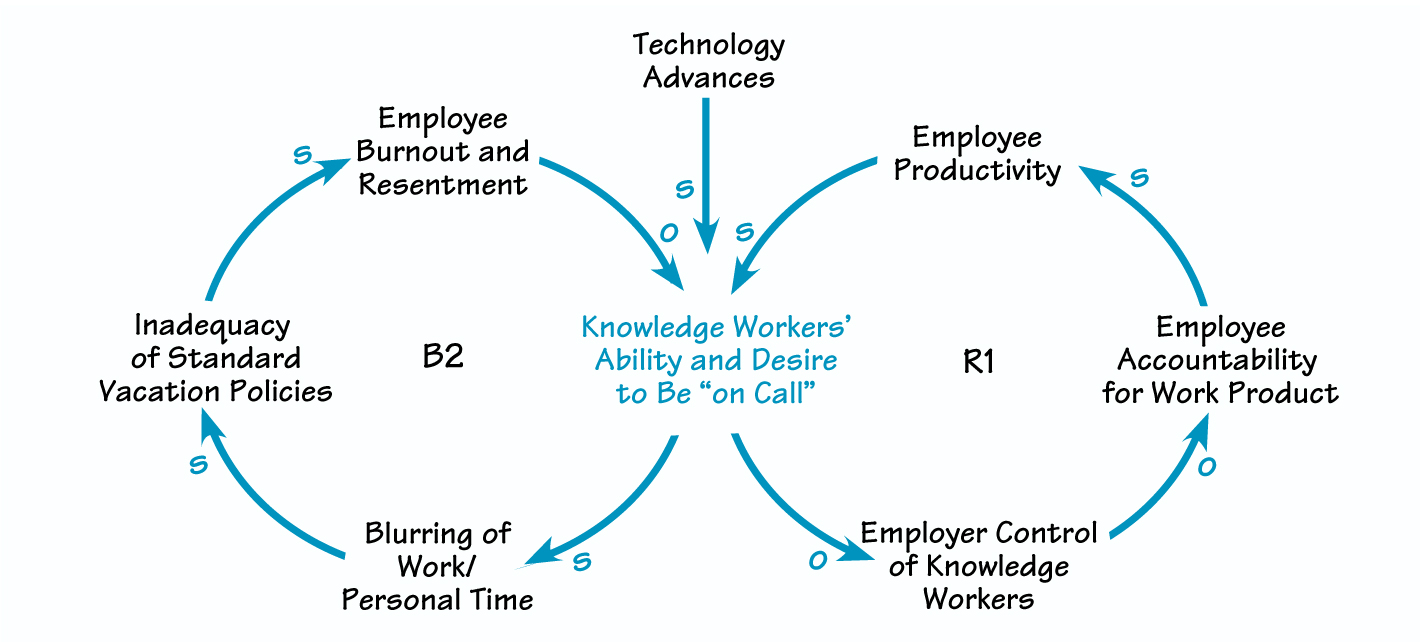This time of year in the Northern Hemisphere, people’s thoughts turn to cool ocean breezes, hectic sight- seeing excursions, or rustic backwoods cabins. Summer is peak vacation season. Most workers carefully calculate their precious leave time, strategically allocating days to maximize their chances for rest and renewal. And in the new world of work, many of those vacationers will sneak in a business call, e-mail message, or FedEx package to the office while their families frolic in the surf or hit the links on a mini-golf course.
According to Colvin, mounting evidence shows that the standard model of two or three weeks of vacation a year doesn’t work for employees on the leading edge of the new knowledge- based economy. Because of advances in technology, numerous professionals are now “on call” around the clock— negotiating deals, handling clients’ problems, and managing projects from wherever they happen to be. These individuals often supervise business tasks while purportedly out of the office, and squeeze in appearances at their children’s sports events between work-related presentations. Company requirements for “face time,” set schedules, and limited days off may be appropriate for those who must perform bounded tasks at a particular place and time. But such restrictions may actually undermine the performance of workers responsible for fulfilling more open- ended or creative functions.
Blurred Boundaries
As shown in “How Vacation Policies Undermine Knowledge Work,” as the amount of knowledge-intensive work performed by employees increases, the level of control that employers exert over how, when, and where work is accomplished declines (R1). A manager would be ill served by demanding that a writer produce 500 words of creative copy an hour instead of agreeing that an article be completed by a certain deadline. Without rigid controls or oversight, workers assume greater accountability for fulfilling their responsibilities. By giving them autonomy, clear goals, and accountability for accomplishing a high-quality work product on time and within budget, managers free employees to increase their capacity to produce results.
HOW VACATION POLICIES UNDERMINE KNOWLEDGE WORK

By giving them greater autonomy, managers free knowledge workers to increase their capacity to produce results (R1). But standard vacation policies contradict this sense of accountability, ultimately undermining productivity (B2).
By its nature, knowledge work results in the blurring of the boundaries between work and personal time, because responsibilities don’t end and ideas don’t cease to percolate once someone leaves the office (B2). But a consultant who has spent three months putting in 70-hour weeks on a project is likely to be increasingly ineffective— and resentful—if company policy requires her to squeeze much needed recovery time from her limited vacation allotment. This kind of administrative control can undermine the motivation of even the most dedicated contributor.
So, what is the alternative?
According to Colvin, “No allotted vacation time. When you go on vacation is up to you. You’re a grownup; you’re responsible for most decisions affecting your job performance; now you’re responsible for this one too.” In this scenario, people would stop thinking about vacation time as an entitlement or restriction and instead focus on balancing their work and personal needs themselves. Abuses of the privilege would be revealed through performance shortfalls. But Colvin holds that, for most employees, eliminating allotted vacation time would give them a sense of ownership for their own work product—leading to greater creativity and productivity.
Janice Molloy is managing editor of THE SYSTEMS THINKER.
